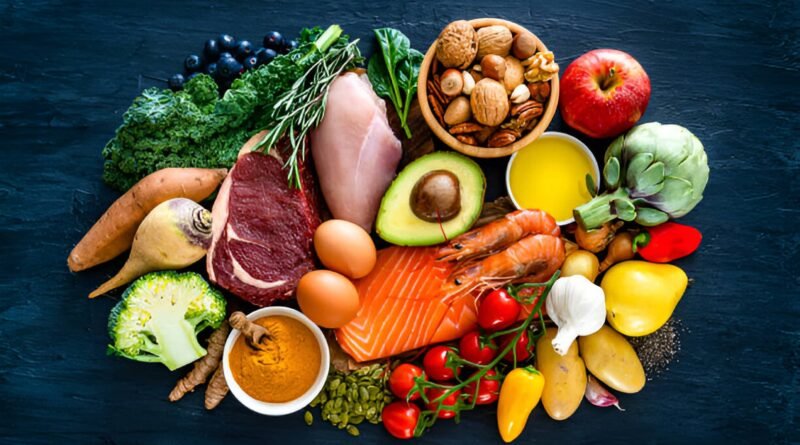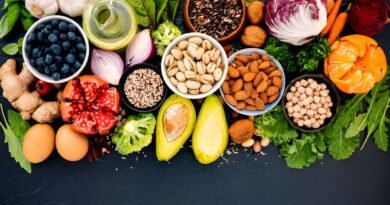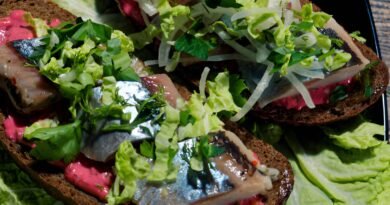Ultimate Keto Diet Food List: Your Guide to Low-Carb Success
Keto Diet Food List: A Guide to Low-Carb Choices
The Keto Diet Food List is essential for anyone embarking on a low-carb, high-fat lifestyle. By focusing on nutrient-dense foods like healthy fats, quality proteins, and low-carb vegetables, you can fuel your body for ketosis while enjoying satisfying meals. This guide provides a comprehensive breakdown of keto-friendly options to help you achieve your weight loss and health goals effortlessly.
Starting a ketogenic diet can be thrilling yet daunting. With many choices, it’s vital to grasp the basics of this high-fat, low-carb diet. This guide will cover the diet’s core, the science of ketosis, and a complete food list for low-carb success.
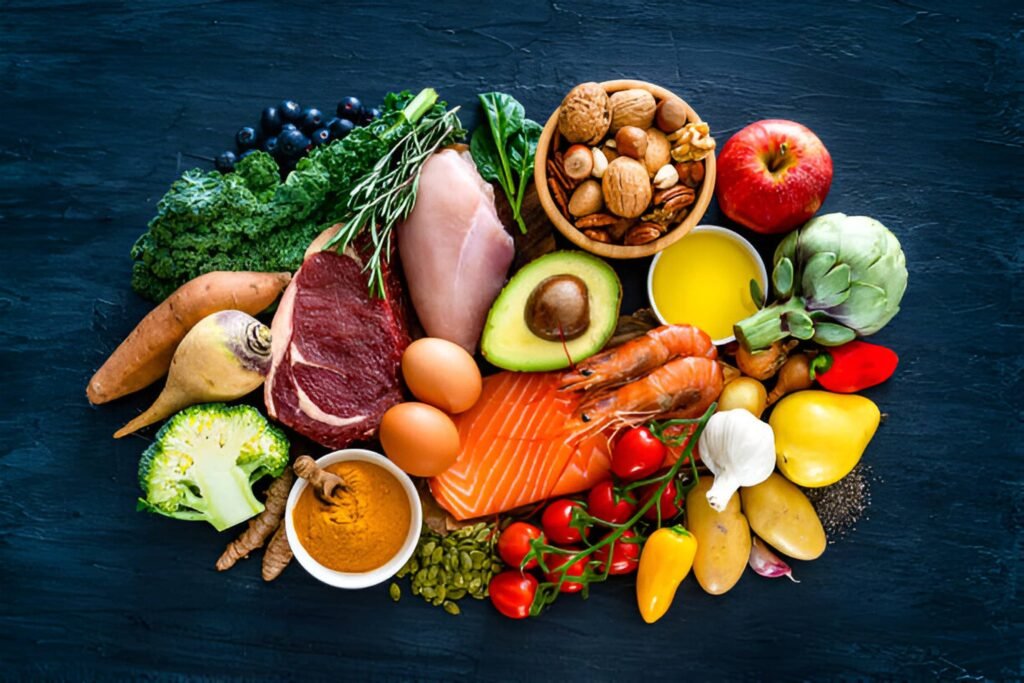
Key Takeaways
- The ketogenic diet is a high-fat, low-carb eating plan that puts the body into a metabolic state called ketosis.
- Understanding the science behind ketosis is crucial for achieving optimal results on the keto diet.
- Proper macro ratio management is essential for maintaining ketosis and reaping the full benefits of the ketogenic lifestyle.
- Incorporating various low-carb, high-fat, and moderate-protein foods can improve overall health and weight management.
- Knowing which foods to avoid is as important as knowing which foods to include on the ketogenic diet.
Understanding the Fundamentals of Ketogenic Eating
The ketogenic diet is a new way to eat that helps your body enter ketosis. It focuses on the right mix of carbs, proteins, and fats, known as keto macros. This change allows your body to use ketones instead of glucose, providing many health benefits.
The Science Behind Ketosis
By eating fewer carbs, your body looks for other energy sources. This leads to a change in the way your liver makes ketones. These ketones can fuel your body, including your brain. This is called fat adaptation and is the core of the ketogenic diet.
Macro Ratios on Keto
- Carbohydrates: 5-10% of total daily calories
- Protein: 20-25% of total daily calories
- Fats: 65-75% of total daily calories
Keeping these keto macros right is critical to staying in ketosis. This is what makes the ketogenic diet work.
Health Benefits of Ketogenic Living
The ketogenic diet offers many health perks. It can help lose weight, improve insulin use, boost brain function, and lower inflammation. By living a keto lifestyle, you can improve your health and feel better physically and mentally.
Getting Started: Essential Kitchen Prep for Keto Success
Starting a ketogenic diet is an exciting step towards a healthier life. To ensure your kitchen is ready, stock up on the right low-carb foods and tools for meal prep. With your kitchen set up for success, you’ll find it easier to follow the keto diet.
Stocking Up on Keto-Friendly Ingredients
The key to a keto-friendly kitchen is the right ingredients. Make sure your pantry has these essential low-carb items:
- Healthy fats (e.g., avocado oil, coconut oil, olive oil, butter)
- High-quality protein sources (e.g., meat, poultry, seafood, eggs)
- Low-carb vegetables (e.g., leafy greens, broccoli, cauliflower, zucchini)
- Nut-based flours (e.g., almond flour, coconut flour)
- Keto-approved sweeteners (e.g., erythritol, stevia, monk fruit)
- Canned and jarred goods (e.g., tuna, salmon, olives, pickles)
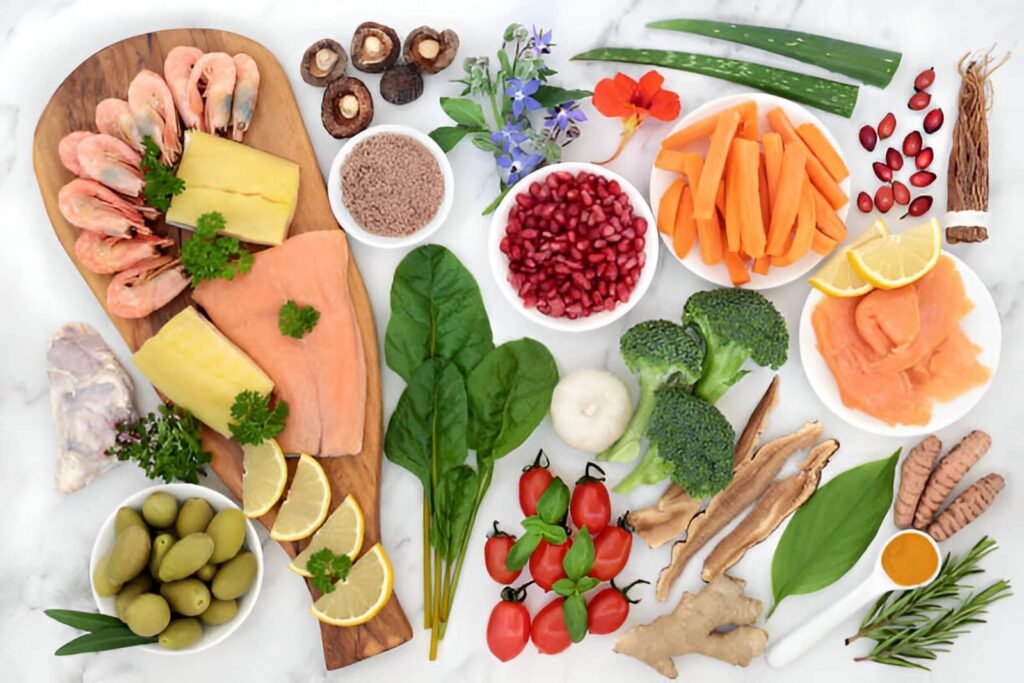
Meal Prep Tools for Keto Success
To make keto meal prep easier, get these essential tools:
- High-quality food processor or blender for sauces, dressings, and smoothies
- Baking sheets and air fryer for easy meal assembly and cooking
- Meal prep containers for storing and portioning meals
- Instant Pot or slow cooker for easy keto cooking
- Digital food scale for accurate macro measurements
With your keto kitchen essentials and meal prep tools ready, you’re set for a smooth keto journey. Enjoy the process, and let your keto kitchen be the base for low-carb success!
Keto Diet Food List: Complete Guide to Allowed Foods
Starting the ketogenic diet means knowing what foods are crucial to your success. You’ll need premium proteins, healthy fats, and low-carb veggies. This list is your guide to reaching your health and weight loss goals.
Premium Protein Sources
Protein is vital in the keto diet. It helps keep your muscles strong and supports your body’s functions. Choose keto-friendly protein sources like:
- Grass-fed beef
- Free-range poultry
- Wild-caught fish
- Pasture-raised eggs
- Organ meats (liver, heart, kidneys)
These high-quality proteins feed your body well. They also help you feel full, making sticking to the keto diet easier.
Healthy Fats and Oils
Healthy fats are your primary energy source on the keto diet. Add keto-friendly fats and oils to your meals, such as:
- Avocado oil
- Coconut oil
- Olive oil
- Ghee
- Butter
- MCT oil
These healthy fats power your body. They also give you essential nutrients for health and well-being.
Low-Carb Vegetables
Adding low-carb vegetables to your keto diet is critical. They help balance your diet and give you vital vitamins and minerals. Good keto-friendly vegetable choices include:
- Leafy greens (spinach, kale, romaine lettuce)
- Cruciferous vegetables (broccoli, cauliflower, Brussels sprouts)
- Zucchini and other squashes
- Avocado
- Tomatoes
- Mushrooms
These low-carb veggies keep you within carb limits. They also support your health with essential nutrients.
By eating these keto-friendly foods, you’ll reach your keto diet goals. You’ll enjoy the health benefits of this lifestyle.
Foods to Avoid on the Ketogenic Diet
The ketogenic diet is a low-carb, high-fat way of eating. It helps your body enter a state called ketosis. To stay in this state, you need to avoid certain foods. These foods can upset the balance required for the keto lifestyle.
Let’s look at the foods you should avoid. This includes high-carb foods, sugary items, and processed products. These are not good for a keto diet.

High-Carb Foods to Avoid
- Grains: Bread, pasta, rice, cereal, and other grain-based products are high in carbs and should be limited to keto.
- Starchy vegetables: Potatoes, corn, peas, and root vegetables are higher in carbs compared to other vegetables.
- Legumes: Beans, lentils, and peas are off-limits due to their carb content.
Sugary Foods and Drinks
- Soda, juices, and other sweetened beverages: These are loaded with added sugars that can kick you out of ketosis.
- Desserts and baked goods: Cakes, cookies, pies, and other sweet treats are high in carbs and added sugars.
- Candy and chocolate: Even small portions of these sugary foods can disrupt your keto progress.
Processed and Unhealthy Fats
- Processed meats: Sausages, bacon, and deli may contain added sugars, preservatives, and unhealthy fats.
- Fried and fast foods: These tend to be high in carbs, unhealthy fats, and calories, making them a poor choice for keto.
- Margarine and vegetable oils: Opt for healthier fats like olive, avocado, and coconut oil.
By avoiding high-carb foods, sugary items, and processed products, you can achieve ketosis. This leads to weight loss, better energy, and health benefits.
Healthy Fats: Your Primary Energy Source
On the ketogenic diet, healthy fats are essential for energy. They come in many forms, each with its benefits. Let’s look at the different types of healthy fats and how they help with keto success.
Animal-Based Fats
Animal-based healthy fats like butter, ghee, lard, and tallow are great for keto. These saturated fats are full of nutrients and give lasting energy. For example, butter and ghee have fatty acids that are good for your gut.
Plant-Based Fats
Plant-based monounsaturated fats are also crucial in keto. Avocados, olive oil, and nuts like almonds and pecans are excellent choices. They help lower cholesterol, reduce inflammation, and are suitable for your heart.
MCT and Specialty Oils
Adding MCT oil to your keto diet can boost ketone production and energy. MCTs are quickly turned into ketones, giving you fast energy. Coconut and avocado oil also have unique nutrients supporting your keto journey.
By using a variety of healthy fats, you can fuel your body well on the ketogenic diet. Try different sources and find what works best for you.
Protein-Rich Foods for Keto Success
It’s essential to get enough protein on the ketogenic diet. Protein helps keep your muscles strong and supports your health. It also makes you feel full and satisfied. Choose keto protein sources that are lean and packed with nutrients to stay energized and on track.
Lean Meats
Go for lean meats like chicken, turkey, and grass-fed beef. These are low in carbs and rich in amino acids, vitamins, and minerals.
Fatty Fish
Fatty fish like salmon, mackerel, and sardines are great keto protein sources. They also have omega-3 fatty acids that are good for your heart. You can grill, bake, or add them to salads and veggie dishes.
Eggs
Eggs are a keto favorite. They’re easy to add to your diet and are full of nutrients. Enjoy them scrambled, fried, or hard-boiled for a quick protein boost.
Protein Source Carbs per Serving Protein per Serving Best Uses
Chicken Breast 0g 54g Grilled, baked, shredded in salads
Salmon Fillet 0g 34g Baked, pan-seared, added to vegetable dishes
Cage-Free Eggs 0.6g 6g Scrambled, fried, hard-boiled, baked into recipes
“Incorporating various keto protein sources into your meals and snacks is key for maintaining muscle mass, boosting energy, and staying satisfied on the ketogenic diet.”
Low-Carb Vegetables and Fruits Guide
Exploring keto-friendly foods is an exciting journey. Low-carb veggies and fruits are vital to this adventure. They help you stay in ketosis and provide important fiber and micronutrients.
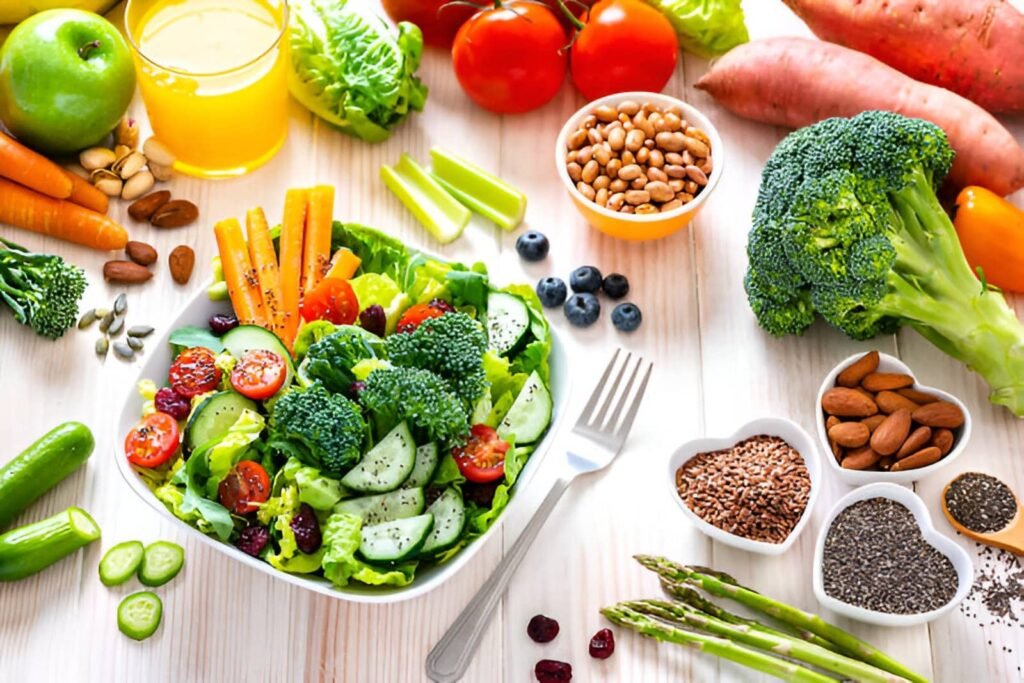
Best Vegetables for Keto
There’s a wide range of low-carb veggies to pick from. Some top choices for a keto diet include:
- Leafy greens (spinach, kale, Swiss chard, arugula)
- Cruciferous vegetables (broccoli, cauliflower, Brussels sprouts)
- Zucchini and other summer squashes
- Avocado
- Mushrooms
- Bell peppers
- Onions (in moderation)
These low-carb veggies are low in carbs but rich in vitamins, minerals, and antioxidants. They’re great for your keto diet.
Keto-Friendly Fruits
Some fruits are okay on a keto diet because they’re not too high in carbs. Here are a few:
- Berries (raspberries, blackberries, blueberries)
- Avocado (yes, it’s a fruit!)
- Lemon and lime
- Coconut
These keto fruits add flavor without raising your carb count. They let you enjoy natural sweetness without leaving your keto goals behind.
It’s essential to watch your portions with low-carb veggies and keto fruits. This way, you get the nutrients you need while keeping your diet keto-friendly.
Dairy Products on the Ketogenic Diet
Dairy can be a great addition to your ketogenic diet. However, choosing the right type to stay in ketosis is essential. This helps you get the most out of this low-carb lifestyle.
Look for full-fat dairy products. They have fewer carbs and more healthy fats. Here are some top keto-friendly dairy picks:
- Cheese – from cheddar and mozzarella to Brie and feta, full-fat cheeses are excellent sources of fat and protein.
- Heavy cream – add it to coffee, use it in cooking, or enjoy it in moderation as a treat.
- Grass-fed butter is an excellent source of beneficial fats like conjugated linoleic acid (CLA).
- Ghee is a clarified butter low in lactose, making it an excellent option for those with dairy sensitivities.
There are lactose-free options if you’re lactose intolerant or want to limit dairy. These include lactose-free milk, cottage cheese, and yoghurt.
Dairy Product Keto-Friendly? Carb Content
Full-fat cheese Yes 0-1g per ounce
Heavy cream Yes 0.4g per tablespoon
Grass-fed butter Yes 0g per tablespoon
Ghee Yes 0g per tablespoon
Lactose-free milk Yes 12g per cup
You can enjoy dairy’s benefits by adding suitable keto dairy to your diet. This keeps you in ketosis and supports your health and weight loss goals.
Nuts, Seeds, and Low-Carb Snacks
Starting your keto journey means finding tasty snacks that fit your low-carb lifestyle. Luckily, there’s a wide range of keto snacks, low-carb nuts, and seeds to satisfy you. These options are perfect for a quick snack while staying in ketosis.
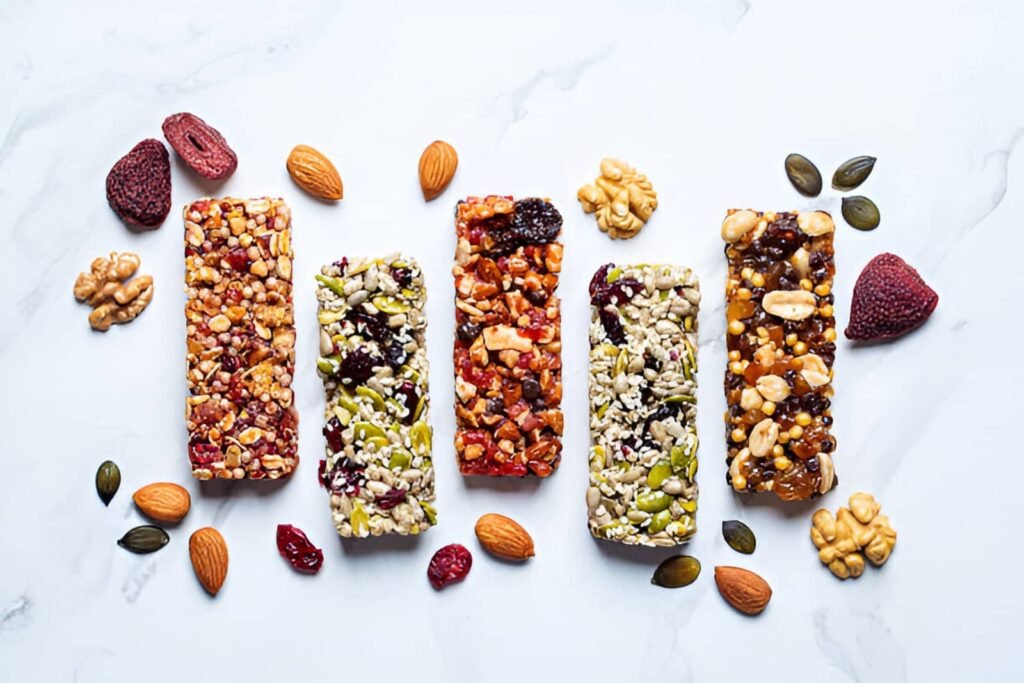
Best Nuts for Keto
Nuts are great keto snacks because they’re full of healthy fats. They also have a crunchy texture that’s very satisfying. Here are some top low-carb nuts for a keto diet:
- Almonds
- Walnuts
- Pecans
- Macadamia nuts
- Brazil nuts
Seed Options
Seeds are also excellent keto snacks. They’re rich in healthy fats, fiber, and vitamins. Try adding these low-carb seeds to your keto meals:
- Chia seeds
- Flaxseeds
- Pumpkin seeds
- Sunflower seeds
- Hemp seeds
Quick Keto Snacks
Need a quick on-the-go keto snack? Here are some easy and tasty keto snack ideas:
Snack Description
Keto Nut Butter Cups: A low-carb version of peanut butter cups made with nut butter and dark chocolate.
Avocado Deviled Eggs: Hard-boiled eggs with a creamy avocado and herb filling.
Cucumber Bites with Cream Cheese: Sliced cucumbers with cream cheese and herbs.
Adding these keto snacks, low-carb nuts, and seeds to your diet will help you stay on track. They’re perfect for satisfying your cravings while following a ketogenic diet.
Beverages: What to Drink on Keto
Staying hydrated is vital to the ketogenic diet. Water is your best choice, but there are other keto-friendly drinks too. These can help you stay hydrated and enjoy your taste buds.
Water: The Fundamental Keto Drink
Water is essential for a healthy keto lifestyle. Drink at least 8 cups (64 ounces) a day. This helps keep you hydrated and gets rid of excess ketones. Add lemon, lime, or cucumber slices to your water for a tasty change.
Unsweetened Tea and Coffee
Unsweetened tea and black coffee are great keto drinks. They’re calorie-free and give you a caffeine boost. Just watch out for sweeteners or high-carb creamers.
Low-Carb Alternatives to Common Drinks
- Sparkling water: Fizzy and refreshing, with no sugar or calories.
- Herbal tea: Enjoy a wide variety of flavorful, caffeine-free herbal teas.
- Bone broth: A nutrient-dense keto drink that can support gut health.
- Unsweetened almond milk: A creamy, low-carb milk alternative.
Beverage Carb Count (per serving)
Water 0g
Unsweetened tea 0g
Black coffee 0g
Sparkling water 0g
Unsweetened almond milk 1-2g
Bone broth 0-2g
Proper hydration is vital for staying in ketosis and keeping healthy on the keto diet. Try these keto-friendly drink options to stay hydrated and energized on your keto journey.
Supplements and Additives for Keto Diet
Starting the ketogenic diet can be tricky. The right supplements and natural flavor enhancers can help a lot. They support your body’s shift to burning fat for energy.
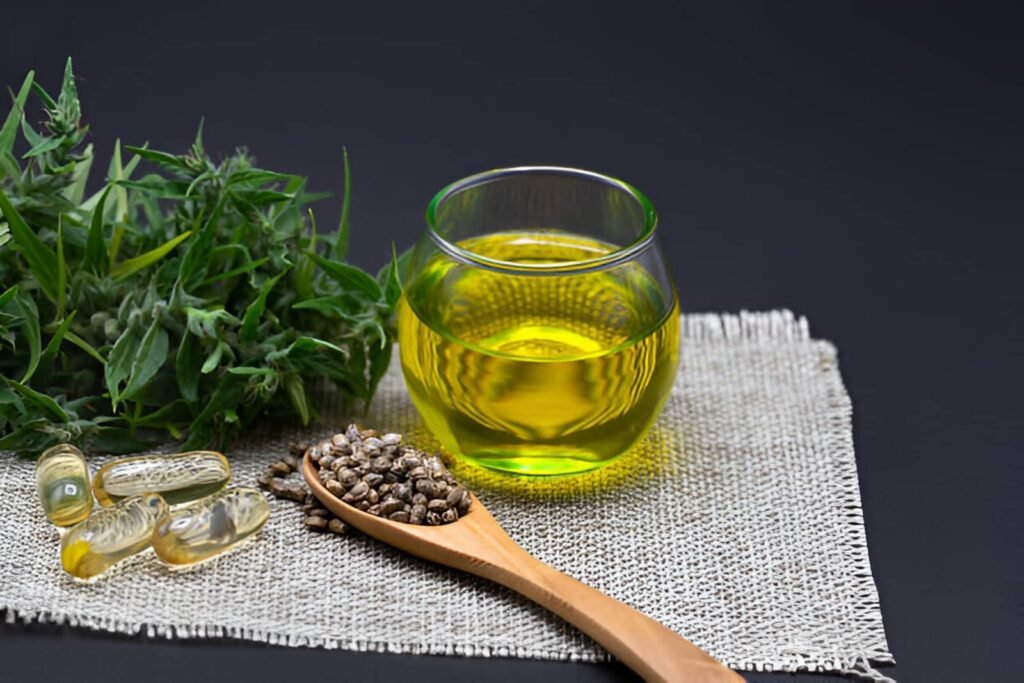
Essential Supplements
On a keto diet, getting the proper nutrients is critical. Here are some essential supplements:
- Electrolytes – Correcting sodium, potassium, and magnesium levels helps avoid keto flu and muscle cramps.
- MCT Oil – MCTs give quick energy to your body and brain, helping with ketosis and thinking.
- Omega-3s – These fats reduce inflammation and boost health while on keto.
Natural Flavor Enhancers
Keto-friendly sweeteners and flavor boosters make low-carb living easier. Here are some great choices:
- Stevia – A zero-calorie sweetener from plants that doesn’t raise blood sugar.
- Monk Fruit – A natural, low-calorie sweetener with a sweet taste.
- Vanilla Extract – Adds flavor to both sweet and savory keto dishes.
Using these supplements and natural additives can help you succeed in keto. They make the transition to burning fat more accessible.
Meal Planning and Portion Control
Mastering keto meal prep and portion control is key to reaching your health goals on the ketogenic diet. Planning your meals and keeping portion sizes in check helps you get the right nutrients. It also prevents overeating and keeps you on track with macro tracking.
Batch cooking is a smart move. Spend a few hours on the weekend making keto-friendly meals for the week. This saves time and helps you control portion sizes. It also stops you from making impulse food choices that could mess up your diet.
- Batch cooked proteins, healthy fats, and low-carb vegetables for easy weekly meal assembly.
- Invest in sturdy meal prep containers to store and portion your food effectively.
- Experiment with keto-friendly recipes that can be easily scaled up for multiple servings.
Tracking your macro tracking is also essential. Knowing the carbs, proteins, and fats in your meals helps you stay in ketosis. It ensures you’re getting the right balance of nutrients.
“Portion control is key to succeeding on the ketogenic diet. Be mindful of your serving sizes and avoid mindless snacking to keep your macros in check.”
The path to keto success is about building lasting habits. With some planning and focus on portion control, you can enjoy a ketogenic lifestyle. You won’t have to give up on your health or the joy of cooking.
Common Mistakes to Avoid When Building Your Keto Menu
Starting the keto diet can be a significant change. But, it comes with its own set of challenges. One big mistake is keto pitfalls like hidden carbs and wrong portion sizes. Knowing these common mistakes can help you do better on the keto diet.
Hidden Carbs
The keto diet needs a careful mix of nutrients with low carbs. But carb creep can happen if you’re not careful. Condiments, sauces, and some “low-carb” foods can have hidden carbs and sugars.
- Watch out for ingredients like sugar, maltodextrin, and high-fructose corn syrup in your food.
- Choose whole foods as much as you can. Make your sauces and dressings to control carbs.
Portion Size Errors
Another keto pitfall is overeating. The tasty flavors of keto-friendly foods can make you eat more than you should. Even healthy fats and proteins can lead to too many calories if not portioned right.
- Learn the correct serving sizes for your favorite keto-approved foods.
- Use measuring cups and spoons to avoid eating too many calories.
- Listen to your body’s hunger and fullness signals to adjust your portions.
You can avoid common keto pitfalls by watching out for hidden carbs and controlling your portions. This way, you can get the most out of the ketogenic diet for your health and wellness.
Budget-Friendly Keto Shopping Guide
Keeping to a ketogenic diet doesn’t have to empty your wallet. Our budget meal planning tips and keto grocery list strategies help you enjoy low-carb living without spending too much. Start with affordable proteins like eggs, chicken, and ground beef. Pair these with low-carb vegetables like spinach, broccoli, and zucchini that will save your budget.
For affordable keto choices, consider frozen and canned items. Frozen fish, meats, and veggies are as good as fresh but cheaper. Canned tuna, salmon, and beans are also great and won’t cost much. Always check the unit prices to save money.
Meal planning and batch cooking are crucial for budget meal planning on keto. Cooking meals ahead saves money and reduces waste. Stock on healthy fats, spices, and low-carb condiments for easy cooking. With creativity and smart shopping, you can follow a ketogenic diet without spending much.
FAQ:
What is the ketogenic diet, and how does it work?
The ketogenic diet is a diet high in fat and low in carbs. It puts your body into ketosis. In this state, your body burns fat for energy instead of carbs.
What are the benefits of following a ketogenic diet?
The ketogenic diet offers many health benefits. It can help lose weight, improve blood sugar control, reduce inflammation, and boost brain function.
What are the essential macronutrient ratios for a successful keto diet?
Aim for 70-80% healthy fats, 15-20% protein, and 5-10% carbs for a keto diet.
What are some of the best keto-friendly protein sources?
Good protein sources for keto include fatty meats like beef, pork, and lamb. Also, poultry, eggs, seafood, and dairy like cheese and Greek yoghurt are excellent.
What are the best low-carb vegetables to include on the ketogenic diet?
Great keto-friendly veggies are leafy greens, broccoli, cauliflower, zucchini, bell peppers, and avocado.
What fruits are allowed on the ketogenic diet?
You can have fruits like berries, lemon, lime, and avocado on keto. They are low in carbs.
Can I consume dairy products on the keto diet?
You can have full-fat dairy like cheese, heavy cream, and Greek yoghurt in moderation on keto.
What are some quick and easy keto-friendly snack options?
Quick keto snacks include nuts and seeds, hard-boiled eggs, cheese sticks, and celery with nut butter. Also, low-carb protein bars or shakes are good.
What types of beverages are recommended on the ketogenic diet?
Good keto drinks are water, unsweetened tea, black coffee, and low-carb drinks like sparkling water or herbal infusions.
What are some essential supplements to consider for the ketogenic diet?
Essential keto supplements are electrolytes like sodium, potassium, and magnesium. Also, MCT oil, omega-3 fatty acids, and exogenous ketones are helpful.

